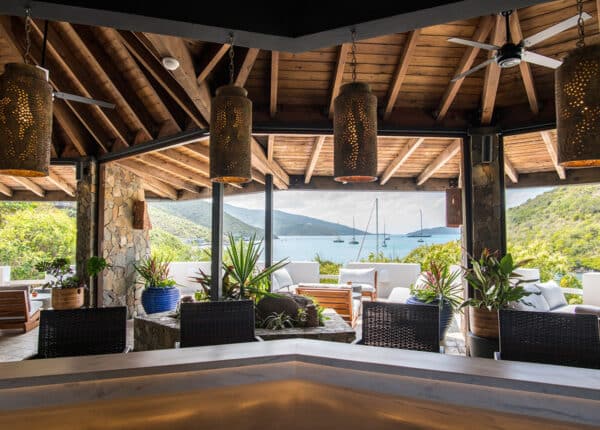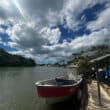By Dennis Chung
CJ Contributor
MY last article looked at how Jamaica can increase competitiveness in the tourism industry, which is critical for Jamaica because tourism is our highest foreign exchange earner, and the area in which we have always had the greatest comparative advantage.
The same challenges that affect tourism can be seen right across the social and economic landscape, and are the main inhibitors of growth.
Jamaica’s IMF agreement has been heralded as one of the last chances we have of saving ourselves from economic disaster, and whether so or not, it certainly is a significant effort to bring fundamental changes to the economy. In itself the implementation of the agreement is going to be disruptive to the economy and society, as we know it, simply because there is so much fundamentally wrong with our economic and social arrangements. Any change we try to make for the better will of necessity be disruptive.
What we must ensure is that
(1) the disruption is carried out with consultation. So that even if some persons do not agree with some things, they will at least understand. Failure to do so could end up with an outcome that nobody wants to own or participate in.
(2) the disruption must not be too radical, or else we could replace inefficient earnings with nothing in its place. This includes ensuring that when certain adjustments are done, that prior to those being done, something new, and more efficient, is put in place to substitute.
(3) the outcome must be measured, and be one that will bring greater benefit. One challenge we have had as a country is that there have been too many disruptions implemented without the desired outcome, for many reasons, but nonetheless ending up not adding any value.
One thing that we must figure out is: What are the pillars of growth? It is important for us to understand this, as failure to do so will only cause the economic plight of the country to deepen.
The first thing we must realize is that sustainable growth can only come from the private sector. While Government can stimulate economic growth, it cannot be sustained. If we do not understand this, and act in a manner that encourages private sector growth, then we will not achieve sustainable economic growth.
Secondly, it is impossible to maintain low debt/GDP, low interest rates, stable exchange rates, and a current account deficit. In the short run, we may be able to use monetary and fiscal policy to achieve all these at once, but this is not sustainable. What it does is lead to black markets, as we saw with the exchange rate in the 80s and 90s. Irrespective of what type of political system and ideology is in place, markets will react, either through the formal or informal system, which is one reason why Jamaica has such a large informal sector.
Finally, the business environment must be one that encourages businesses, and individuals, to prosper. One of the reasons that the US economy has done so well, and is easy to rebound from economic crises, is precisely because people and businesses have the opportunity to flourish to their potential within the formal environment. If this environment is not present then (1) an informal economy, and society, will develop and (2) capital and human resources will not fully participate in the economy, and may even go to another economy, through migration and business relocation.
It is very important for us to understand these underlying pillars of growth as we move forward under this IMF agreement. In the past I have found that there has been too much preoccupation with focusing on the fiscal solutions, not understanding that everything that happens on the fiscal side depends directly on what happens in the market economy. Because, if the market economy does not grow, then fiscal revenues and the balance of payments will suffer. And if fiscal revenues suffer, then the debt/GDP and foreign exchange rate will suffer. What this will do is create a vicious circle that puts the economy into a downward vortex.
In an attempt to salvage the fiscal downturn, what will happen is that Jamaica’s government will administer more taxes, or more debt, which will again lead to a further downturn.
The only way to break this cycle is to create an environment in which businesses will flourish, and this may also mean providing incentives for foreign exchange earners, in particular. This in turn will increase GDP, and improve the balance of payments, leading to greater earnings for businesses, which will then increase employment, causing greater spending, greater profits, and greater fiscal revenues. This is the only sustainable model. Anything outside of this will be temporary, and will only mean that macroeconomic stability will only be temporary, and can only be artificially held.
The IMF agreement and economic programme does include initiatives that can create this winning equation. These include comprehensive tax reform, insolvency legislation, financial sector legislation, labour market and public sector reform, and financial support for businesses. And these are very good initiatives, but we must be careful to ensure that the initiatives are implemented with reference to what I described above as the pillars of growth.
Therefore, as we move forward in the IMF programme, it is very important for us to understand that the main risk lies in not building on these growth pillars, as failure to do so will certainly result in short-term gain and long-term failure.
Dennis Chung is a chartered accountant and is currently Vice President of the Institute of Chartered Accountants of Jamaica. He has written two books: Charting Jamaica’s Economic and Social Development – 2009; and Achieving Life’s Equilibrium – balancing health, wealth, and happiness for optimal living – 2012. Both books are available at Amazon in both digital and paperback format. His blog is dcjottings.blogspot.com. He can be reached at drachung@gmail.com.







